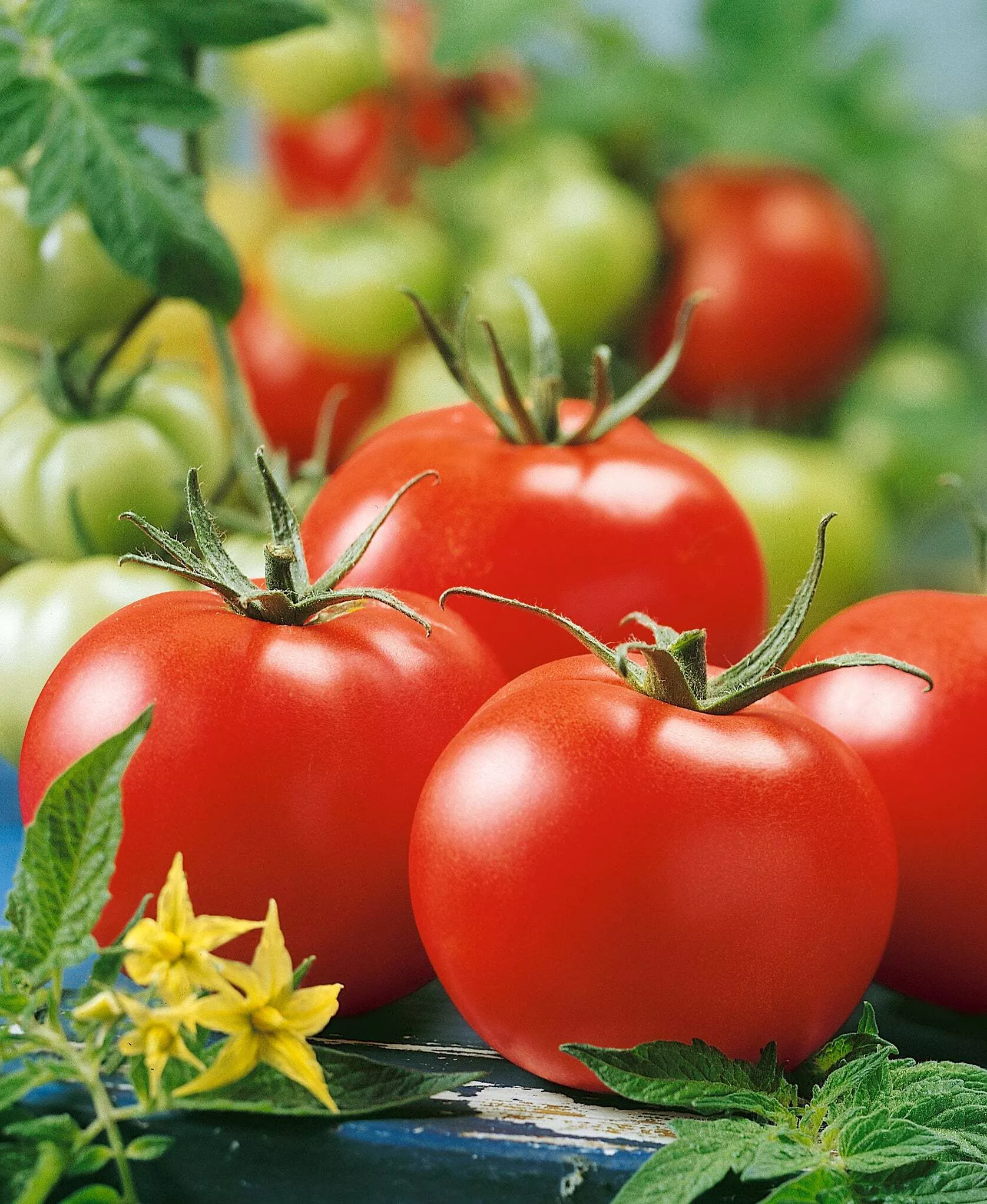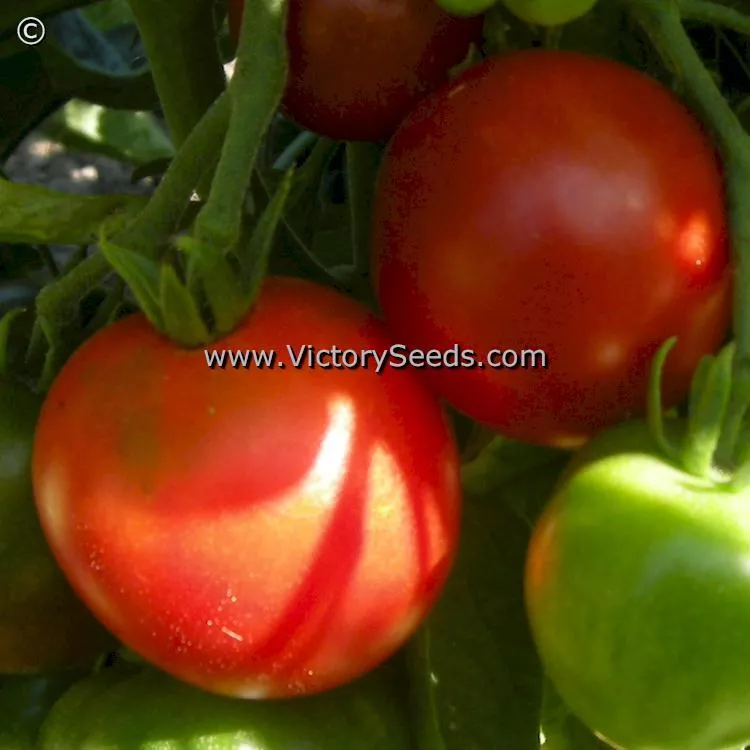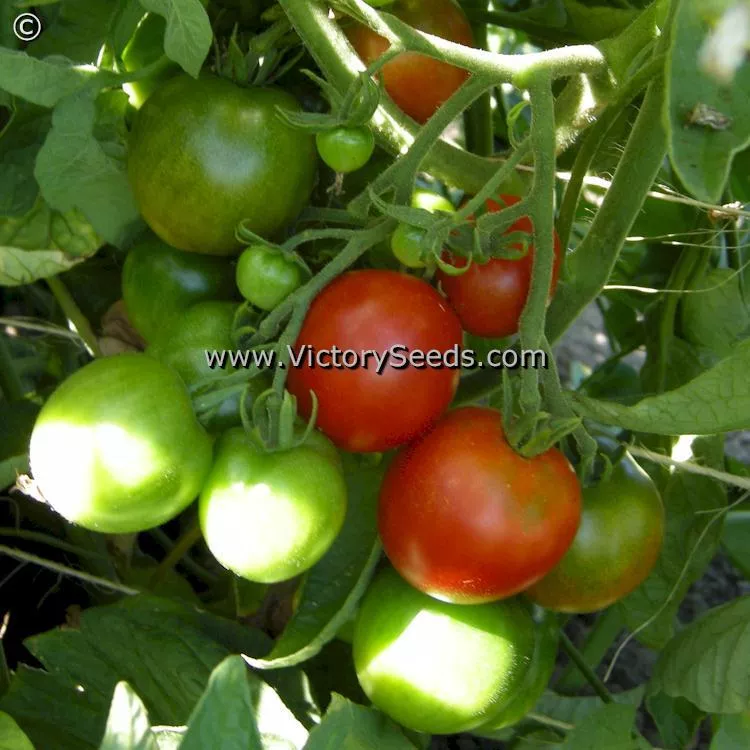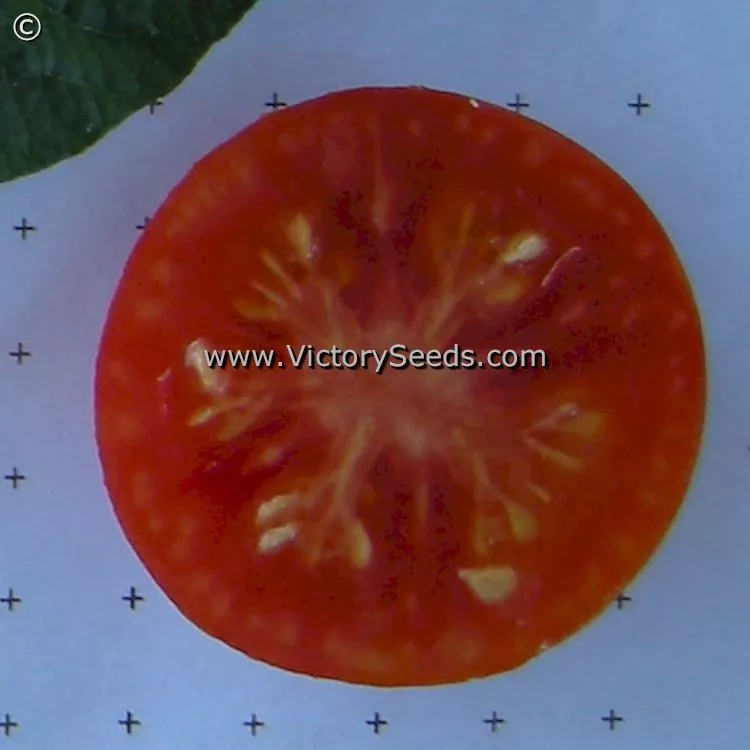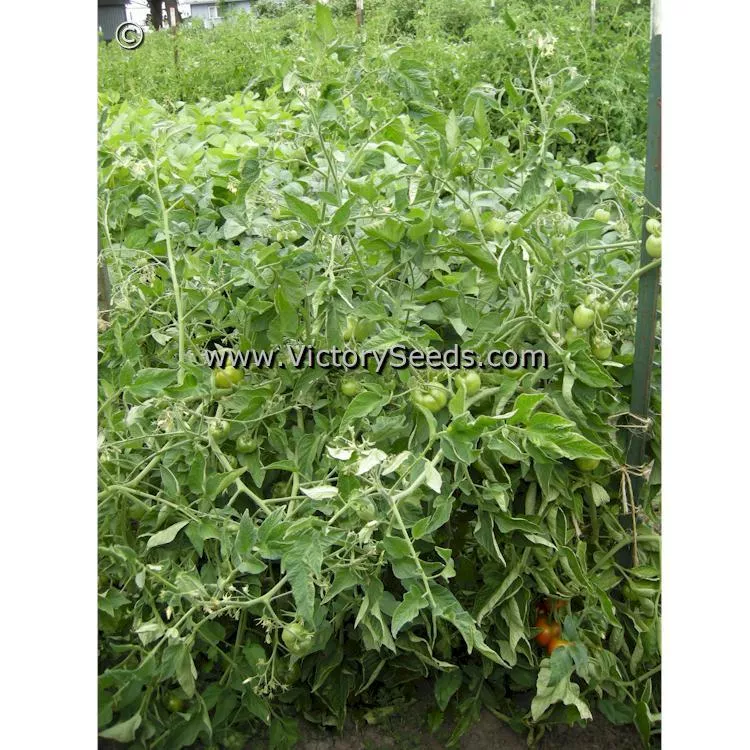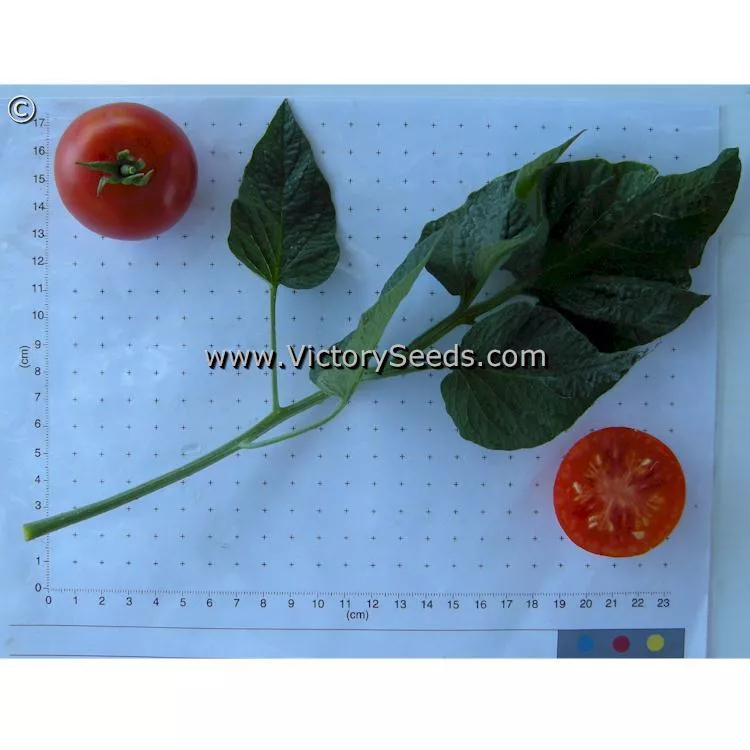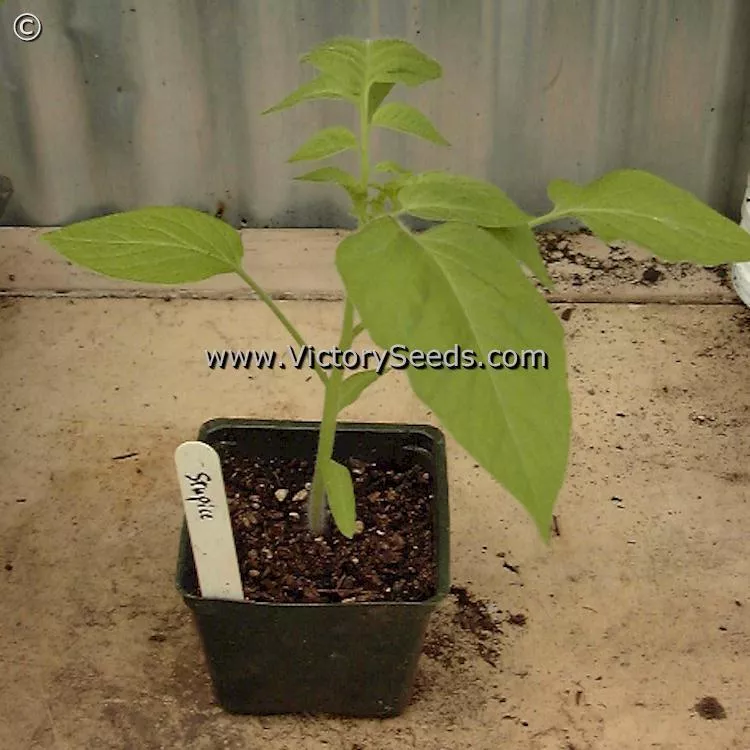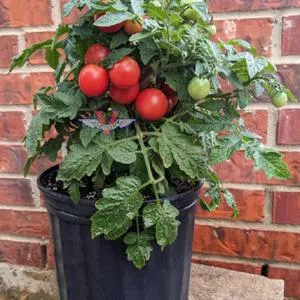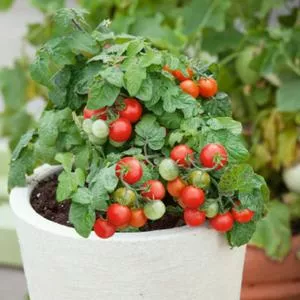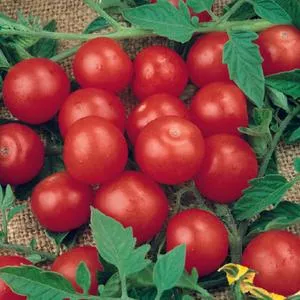






Stupice Tomato
Price: $4.45
SKU: 3400661Forest Shomer, founder of the Abundant Life Seed Foundation (ALSF), received this variety from Czechoslovakian tomato breeder named Milan Sodomka in 1976. It seems that Mr. Sodomka read an article about the ALSF in a copy of Rodale's "Organic Gardening Magazine" and was inspired to reach out. And this was during the Cold War. He wrote:
Dear Sir:
I am a permanent reader of 'The Organic Gardening and Farming' and the January issue I have read a very interesting article: 'Special seeds for special needs' and your successful undertaking. I beg to ask you for your catalog and some trial seeds esp. of your tomatoes, onions, lettuce, Marigold and Verbena for now. In the contrary I am enclosing four varieties of our Czechoslovak tomatoes and two East German bush varieties which proved here very well. And one Bulgarian variety too.
I am 70 and in spite of this I am most happy when I can try something new in my garden. Please to write me if you have some wish I could accomplish. I thank you in advance!
Very sincerely yours,
Milan Sodomka"[1]
Special Groups: "Epic" Tomatoes
Harvest Timing: Early/Short Season
Genetic Classification: Open Pollinated
Full light and cooler temps (60° to 70°) will help to prevent the seedlings from becoming too leggy. If plants become rootbound before you can safely set them into the ground, transplant them into larger pots.
Harden off plants before planting outside. Young plants are very susceptible to frost and sunburn damage. Avoid too much nitrogen. Water evenly but not in excess.
Click here to view our full tomato growing guide.
- "Good Enough To Eat: Kind words from the originator of the Czech Stupice tomato," by Chris Smith, Special to the Post-Intelligencer, November 9, 2005.
- "2002 Seed and Book Catalog," Abundant Life Seed Foundation.
- "100 Heirloom Tomatoes for the American Garden," Dr. Carolyn Male, Workman Publishing, 1999, pages 222-223.
Customer Reviews:
By Brien McMullen (Tacoma) on October 7, 2025
We have a very short season here in Western Washington so I need a small really tomato. 2 plants on 6 foot tall vines gave us more than we could eat.
These store incredibly well, right on the counter for weeks, untouched by the fruit flies, I never find rotted fruit.
By Martin Valeri on January 2, 2021
This was the earliest non-cherry tomato I grew, and it was productive. The flavor is good, but not great. Texture was good, though they tended to get a little soft at maturity.
By Abi Beutler on November 10, 2018
This tomato plant is probably the first to produce and keeps on producing until the very end of the season. I only plant two plants of this and it is more than enough to stock our garden salads and also to blend up and make sauce for things like pizza for our large family. Stupice is super reliable. Plant-wise, I have had years when it seemed small but this past year it was huge and sprawling. Fruit-wise, it is pretty seedy like a salad tomato and its taste is rather mild but not bland. It helps us as we wait for our most glamorous beefsteaks. I think I'll always have stupice as my early tomato unless I find another variety that can compete.
By Debra Leschke on September 19, 2017
I've grown this several times. Along with <a href=https://victoryseeds.com/products/glacier-tomato>Glacier</a>, it usually provides my first tomatoes of the season and continues to set fruit through heat when others just drop their blossoms. Fairly small tomato, but it has good flavor.
By Alison Dvorak on December 29, 2015
In 2014 I grew these in full shade. They still produced ripe tomatoes! They were small, bland, and mealy. But, tomatoes! In full shade in zone 6! (I don't mean just on a north-facing balcony, either. I mean at the bottom of a hill and shaded by trees.)<br><br> In 2015 I put them in a part shade area near where Old Brooks had failed to produce the previous year. Despite the no-real-rotation and the part shade, these guys produced loads of very tasty tomatoes a bit smaller than a tennis ball or about the size of an egg.<br><br> I grew these along with Legend and Old Brooks. All three are supposed to be resistant to early and late blight...but all three got early blight. These got it last and seemed not much affected (again despite the part shade). I would definitely call these tolerant to early blight. And they did not get late blight either. They survived and produced right up till frost.<br><br> Tasty tomatoes in part shade...these guys are great. (Oh, and they're early, too. ;))
By Regina Coffelt on September 3, 2013
I started growing Stupice tomatoes in the early 1990s and every year I garden it is the one tomato I will plant without fail. Why? Because no matter what, Stupice does not fail me! The first year I planted it, I picked thirty-odd ripe tomatoes off of one plant in a single day. It doesn't care what the weather's like (as long as it's above freezing) it will bloom its little head off and set fruit on every blossom. This past summer we were hit with unusually high temperatures (one week of 110F, followed by consistent 98-105F until this week) and although several of my hot-weather tomato varieties have either not produced or at best struggled to set a crop, Stupice is one that performs consistently (it's also way earlier than any early tomato I've grown--normally have ripe tomatoes within 40-45 days). Its sweet flavor also makes it great for snacking, in salads, adding to sauces, or my favorite use yet: no sugar added catsup and BBQ sauces. <3
By Bethany Brown on July 13, 2013
This is my first year successfully starting these from seed. By July 11, I had a ripe tomato on one of my Stupice plants. I don't usually get ripe tomatoes till the end of the first week of August, sometimes later, so I was very excited! I have a few more that look like they'll be ripe in a few days. I'll definitely be doing more of these next year!
By Leslie Wiberg on March 19, 2013
I have grown these for several years now, they are a very EARLY tomato; the taste is good too. I put this plant outside with protection in late April one year and picked my 1st tomato on June 24, a personal best. This is a prolific tomato also.
By mike hall on November 9, 2012
I have been planting this tomato variety every year for the past 5 seasons, when I really got serious about home food production. Stupice is a very early producer. I start seeds indoors in mid-march and plant outdoors in mid-May. Harvesting begins around mid-July and I continues to get fruit until I pull plants in mid-October. Medium sized fruit that has a wonderful tomato flavor. In 2012 I successfully used seeds that were purchased in 2009. I will continue to plant older seeds every year as an experiment to see how long they stay viable.

